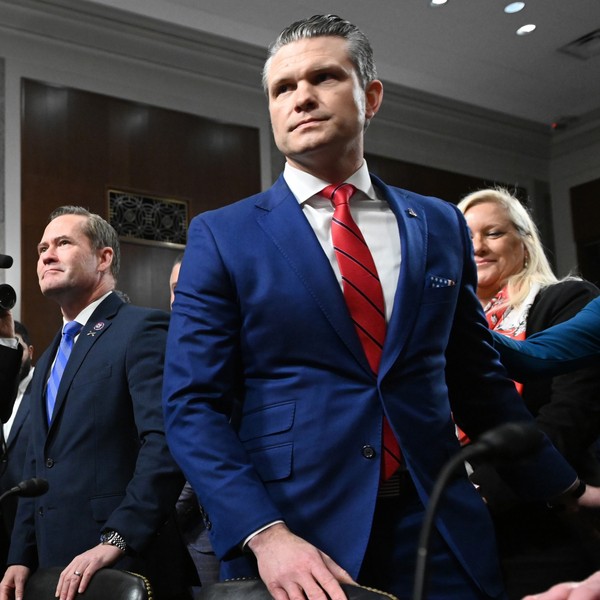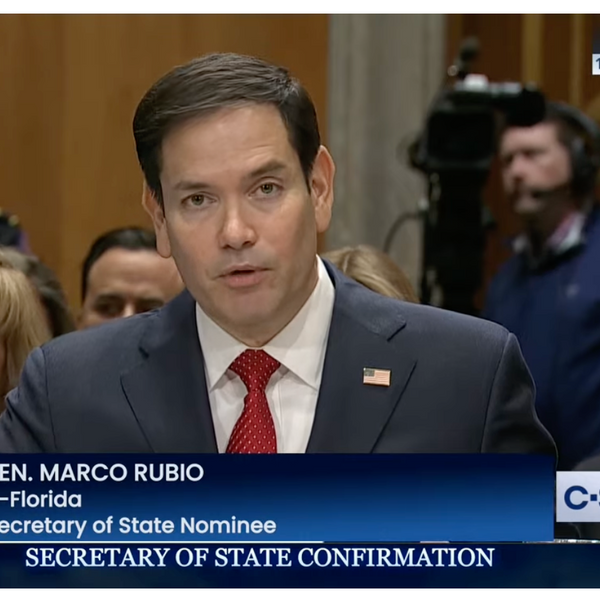The U.S. must retrench for the sake of its own security, but there are many domestic political obstacles that make retrenchment practically impossible under current conditions. The status quo strategy of military primacy is too deeply entrenched and there are too many established interests committed to its preservation.
To change that, there needs to be a major overhaul of America’s domestic political system and its foreign policy, and neither can succeed without the other. That is the heart of Peter Harris’ case for reform in his excellent new book, “Why America Can’t Retrench (And How It Might).”
It is essential reading for advocates of foreign policy restraint.
The first half of the book details how the U.S. adopted a strategy of military primacy and how that strategy transformed the country. Harris defines military primacy as “a grand strategy of maintaining and exploiting America’s military advantages over global and regional competitors, with a view to leveraging these structural advantages in service of favorable political and economic outcomes.”
America’s current strategy of primacy is not only ill-suited to an increasingly multipolar world, but it also represents a serious threat to the security of our country by putting the United States on potential collision course with great power rivals. As Harris puts it, “Even if it is accepted that primacy made some sense during the so-called ‘unipolar moment’…it cannot be argued that the same unilateralist policies are suited to a world that can punch back.”
The U.S. needs a less ambitious and dangerous strategy, and to get to it the U.S. needs retrenchment. Retrenchment is simply “the reduction of overseas forces and security obligations.”
While Harris is interested in scaling back America’s military footprint, he makes clear that he believes that U.S. international engagement in every other respect should continue and, in some cases, intensify. The foreign policy agenda he spells out in the final chapter is what he calls “internationalism anew” with an emphasis on increased peaceful American engagement with the rest of the world. Even as the U.S. military pulls back from its forward-deployed positions, the U.S. would remain very much involved in global affairs.
The obstacles to reform and retrenchment are considerable. Any system that has been in place for 80 years would be difficult to alter. The “militarist redoubt,” as Harris sometimes refers to it, is going to be unusually difficult to overcome. Arguments for retrenchment do not get anything like a fair hearing in the current system because, as Harris shows, the “US political system is designed to reject them.”
The institutions of the national security state exist to implement a strategy of primacy, and that has created entrenched interests in Washington and across the country hostile to any major overhauls. Bureaucrats working in the government, local communities benefiting from military spending, and ideologues wishing to use U.S. power to advance their agendas are all likely to resist any significant changes to the existing strategy. As Harris tells us, “Simply put, programmatic attempts at retrenchment are doomed to failure in the present context because there are too many Americans who profit from militarism, who regard primacy as a means of promoting their values abroad, or who would be across-the-board retrenchment as an assault on their sense of national identity.”
Harris’ analysis of the barriers to changing U.S. foreign policy can seem disheartening at first, but he is not counseling despair. He points out that “informed and analytical description can be a clarion call to evaluate the status quo when otherwise it might have gone unchallenged or even unnoticed.” If advocates of restraint are to make any headway in changing how the U.S. operates in the world, it is critical to have a clear view of the steep and treacherous climb ahead of us.
The proposals for domestic renewal in the book may seem overly ambitious, but they will have to be if they are going to produce the kind of sweeping changes to our political system and foreign policy that need to be made. Among other things, Harris suggests significant changes in our elections and our party system, including moving towards a system of proportional representation.
He calls for Congress to reassert itself in matters of war and to claw back powers from the national security state. Harris also recommends expanding both houses of Congress to make elected officials more responsive to their constituents, and he suggests granting statehood to U.S. territories or incorporating them into existing states so that they are fully represented in the government.
A grand strategy of restraint is Harris’ preferred alternative, but it is worth noting that the political and policy reforms that he wants to see would open up American foreign policy debate. As he says, the “goal is not to replace America’s primacist cartel with a restraint-oriented counterpart, but to imagine a more pluralistic environment within which the American people might be exposed to a wider range of ideas about foreign policy.”
Harris envisions a more inclusive and democratic political system that would also make it possible for the U.S. to retrench.
The U.S. is endangered by the current strategy of primacy. Indeed, Harris says that current strategy is a “recipe for conflict with China.” Primacy makes the U.S. less secure by design, and it “heightens the risks of the United States sleepwalking into a disastrous confrontation with a great-power rival.” To avoid that calamity, the U.S. needs to retrench, and in order to retrench it must reform itself at home.















